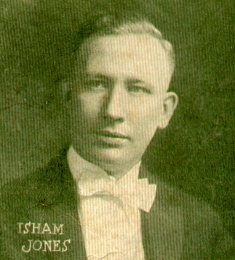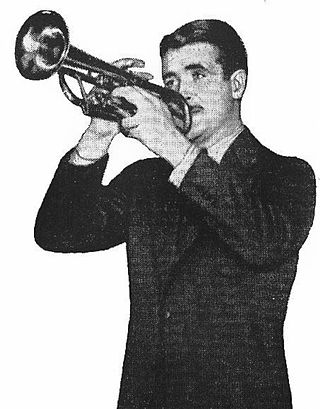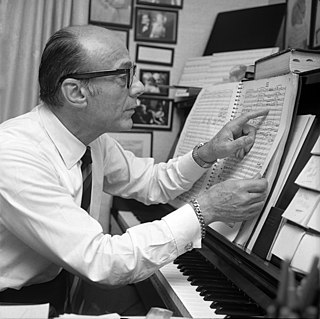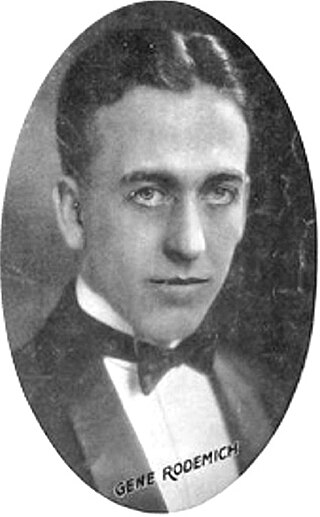This article needs additional citations for verification .(February 2022) |
Carl Fenton was a pseudonym of Walter G. Haenschen , American bandleader, composer, and radio musician. [1]
This article needs additional citations for verification .(February 2022) |
Carl Fenton was a pseudonym of Walter G. Haenschen , American bandleader, composer, and radio musician. [1]
The Carl Fenton Orchestra (AKA "Carl Fenton’s Orchestra") was a title given to Brunswick Records studio bands through the 1920s. The name was invented by Brunswick music director Walter Gustave "Gus" Haenschen shortly after taking the position for their brand-new American division. Later, the name was taken by violinist Ruby (Rubin) Greenberg.
Haenschen, whose own name was considered ill-suited for commercial recordings, haphazardly chose the name "Fenton" after the town of Fenton, Missouri, near his hometown of St Louis, Missouri. He attended Washington University in St. Louis. He told an interviewer "How do you find a name? Just pull it out of a hat." The first name "Carl" was likely selected by Brunswick's office staff.
The earliest songs recorded by Carl Fenton's Orchestra were Karavan and Romance, from October 1919. Brunswick Records released many "Carl Fenton" records, with various line-ups of musicians. The band was typically led by Haenschen in the studio, but was led by studio musician/conductor Rubin "Ruby" Greenberg during their occasional concerts.
Around the time that Haenschen left Brunswick Records in mid-1927, Greenberg purchased the rights to the Carl Fenton name. From 1928 to 1930, Greenberg was musical director for Gennett Records, where he recorded as "Carl Fenton’s New Yorkers". Under the direction of Greenberg, the Carl Fenton Orchestra then moved to radio, where they co-starred with a young Bing Crosby from 1931 to 1932 on the CBS network (on tour the orchestra was named "Cremo Orchestra" after sponsor Cremo Cigars).
In 1932, Greenberg had his name legally changed to Carl Fenton. He continued to work as a music director for radio and theaters until his death in January 1942.

This is a list of notable events in music that took place in the year 1925.

Brunswick Records is an American record label founded in 1916.

Donald Matthew Redman was an American jazz musician, arranger, bandleader, and composer.

Okeh Records is an American record label founded by the Otto Heinemann Phonograph Corporation, a phonograph supplier established in 1916, which branched out into phonograph records in 1918. The name was spelled "OkeH" from the initials of Otto K. E. Heinemann but later changed to "OKeh". Since 1965, Okeh was a subsidiary of Epic Records, a subsidiary of Sony Music. Today, OKeh is a jazz imprint, distributed by Sony Masterworks.

Isham Edgar Jones was an American bandleader, saxophonist, bassist and songwriter.

Roland Bernard "Bunny" Berigan was an American jazz trumpeter and bandleader who rose to fame during the swing era. His career and influence were shortened by alcoholism, and ended with his early demise at the age of 33 from cirrhosis. Although he composed some jazz instrumentals such as "Chicken and Waffles" and "Blues", Berigan was best known for his virtuoso jazz trumpeting. His 1937 classic recording "I Can't Get Started" was inducted into the Grammy Hall of Fame in 1975.

John Waldo Green was an American songwriter, composer, musical arranger, conductor and pianist. He was given the nickname "Beulah" by colleague Conrad Salinger. His most famous song was one of his earliest, "Body and Soul" from the revue Three's a Crowd. Green won four Academy Awards for his film scores and a fifth for producing a short musical film, and he was inducted into the Songwriters Hall of Fame in 1972. He was also honored with a star on the Hollywood Walk of Fame.

Theodore Salvatore Fiorito, known professionally as Ted Fio Rito, was an American composer, orchestra leader, and keyboardist, on both the piano and the Hammond organ, who was popular on national radio broadcasts in the 1920s and 1930s. His name is sometimes given as Ted Fiorito or Ted FioRito.

Russell Morgan was an American big band leader and arranger during the 1930s and 1940s. He was best known for being the one of the composers of the song "You're Nobody till Somebody Loves You", with Larry Stock and James Cavanaugh, and was the first to record it in 1944.

Champion Spark Plug Hour was a music radio program sponsored by Champion. It was broadcast on New York's WJZ and WGY during the late 1920s and early 1930s. An entry in The Chronicle-Telegram for October 4, 1926, indicates the show aired on Tuesday afternoons at 5 p.m. By 1928, they were heard Wednesday evenings at 8 p.m. on the NBC Blue Network.

Thomas Ernest Hare was an American singer who recorded prolifically during the 1920s and 1930s, finding fame as a radio star on the Happiness Boys radio program.
Chevrolet Musical Moments Revue, also known as Musical Moments or the Chevrolet Show, is an electrically transcribed or recorded radio program issued by World Broadcasting System. It was a musical variety show which in 1935–36 featured David Rubinoff and Westbrook Van Voorhis, Monday through Friday for 15 minutes. A great many musicians and musical ensembles appeared on this show including Gus Haenschen/Carl Fenton and his orchestra; the Song Smiths; Casper Reardon, jazz harpist; and Metropolitan Opera soprano Josephine Antoine in 1937.
Matthew Michael "Matty" Malneck was an American jazz violinist, songwriter, and arranger.

Eugene Frederick Rodemich was a pianist and orchestra leader, who composed the music for numerous films in the late 1920s and early 1930s, mostly cartoons and live-action short subjects produced by The Van Beuren Corporation and distributed by RKO Radio Pictures.

The history of jazz in Belgium starts with the Dinant instrument maker Adolphe Sax, whose saxophone became part of military bands in New Orleans around 1900 and would develop into the jazz instrument par excellence. From then on the early history of jazz in Belgium virtually runs parallel to developments in the country of the birth of jazz, from the minstrel shows in the late 19th century until the first Belgian jazz album in 1927 and beyond.
Walter Bowman Rogers was an American cornet player, concert band and orchestral conductor and composer, who was responsible for most of the orchestral arrangements on recordings made for the Victor Talking Machine Company between 1904 and 1916. He left the Victor Company when he accepted an equity partnership with the Paroquette recording company, a venture which ended when the company went into receivership. He accepted arranging, conducting positions with the Paramount and Emerson companies before he was offered an executive-level position by the Brunswick-Balke-Collander Company when the nationally known manufacturer of bowling, saloon, and phonograph cabinetry decided to expand its operations in the talking-machine industry by creating a line of phonograph recordings. Rogers became Brunswick’s director of classical-music releases, a role he held until shortly before the Brunswick phonograph division was acquired by the Warner Brothers film corporation in April 1930.
World Broadcasting System, Inc., was an American recording service for the radio industry founded in 1929 by Percy L. Deutsch (1885–1968), with key investors and creative artists (Walter) Gustave Haenschen and Milton Diamond and was originally based in New York. The company recorded and, through its subsidiary, World Program Service, distributed discs to radio stations for broadcast. The discs themselves were 16 inches in diameter, vertical-cut, recorded at 33 1/3 r.p.m., and would play for 15 minutes per side on average. These recordings, which were made especially for radio studios that could not afford to maintain a studio orchestra, were not sold to the public.
15 Minutes with Bing Crosby was Bing Crosby's first solo radio series, which ran from September 2, 1931 until October 31 the same year. It was to have a major impact on his career.
Abraham "Abe" Katzman was a Klezmer violinist, bandleader, composer, and Brunswick Records recording artist of the 1920s. He was the father of film producer Sam Katzman, uncle of American arranger and bandleader Louis Katzman and the great-uncle of Henry Katzman and Leonard Katzman.
Walter Gustave Haenschen was an arranger and composer of music and an orchestra conductor, primarily on old-time radio programs.